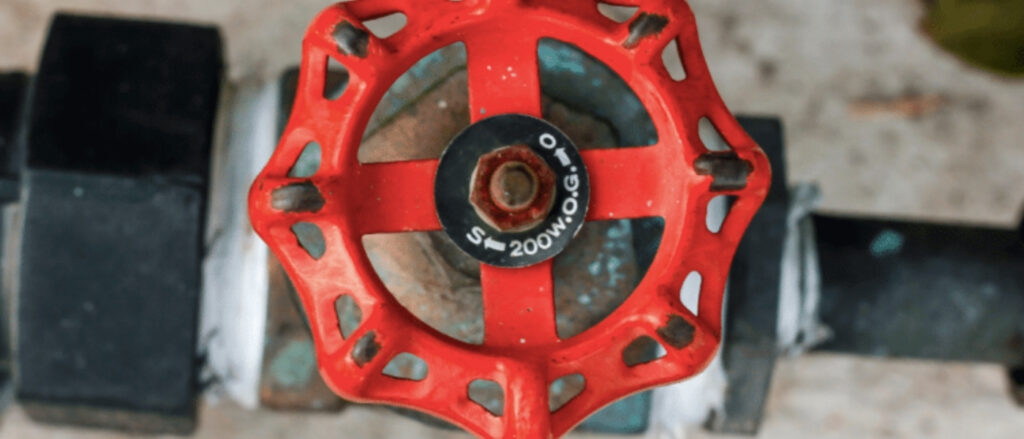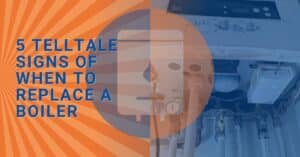Will Turning Water Off Affect Your Boiler?

Most homeowners in the UK often wonder if they should turn off the water from the mains and if there are any adverse effects. The belief is that turning the water off leaves the boiler susceptible to damage, and while this is partly true, it rarely ever happens. This article will cover the instances you should switch off your water and when it is best to leave it on. We will also go over the impact switching off your water has on the different types of boilers out there.
When you should turn off your boiler
Some situations call for cutting the water supply to your boiler. If for instance, you notice a leak in your boiler, tanks or your pipes, then turning off the water at the mains is a priority.
Another reason you might turn off your water is when you leave for holiday and the hot water in the tank or boiler is not in use. If you have a hot water cylinder, as is the case with System and Conventional boilers, turning off your water prevents the tank from wasteful refills. While water from the mains is switched off, it is important that you still leave the boiler on but set the thermostat at a low temperature. For most boilers, the central heating and hot water systems work independently therefore your house will remain warm, even with the water turned off.
How to turn the hot water off?
In most cases, you would turn the water off at the stop clock, which is the central water inlet for your property. In other homes, you might find there is one main inlet but there are different stop clocks around the house. A two story house might have a stop clock that controls water on each floor. Therefore, if the leak is happening on the first floor, you can turn off the stop clock but the flow of water on the other floor is unaffected.
If you cannot find any stop clock in your home, there is a possibility it could be outside in which case, it is best to contact your local authority as turning it off could affect the water going to your neighbours’ properties.
If the leak is in the boiler, turning off the water from the mains will not instantly stop the leak immediately considering there is still water in the tank but it will prevent a refill. In this case, simply put a bucket under the boiler until the leak subsides the contact your plumber.
Common reasons for leaks in the boiler include:
Excessive pressure resulting from high water temperature or high incoming water pressure (This is common with Conventional Boilers).
Damaged tanks
Old Age
Lack of service
Does hot water need to be on for the central heating to work?
 This largely depends on your boiler but for most boilers, turning off the water from the mains results in no hot water. You will still get central heating because as mentioned earlier, the two systems work independently. The water that comes from your faucets and shower-heads is not the same that heats your property. Water that passes through your heat exchangers is in a closed loop. The water is heated through the heat exchangers in the boiler, transported to the radiators where it heats your home, then back to the boiler to be reheated. As such the central heating in your home will operate without water from the mains as though nothing happened.
This largely depends on your boiler but for most boilers, turning off the water from the mains results in no hot water. You will still get central heating because as mentioned earlier, the two systems work independently. The water that comes from your faucets and shower-heads is not the same that heats your property. Water that passes through your heat exchangers is in a closed loop. The water is heated through the heat exchangers in the boiler, transported to the radiators where it heats your home, then back to the boiler to be reheated. As such the central heating in your home will operate without water from the mains as though nothing happened.
The water in your taps comes from the tank or cylinders, which are fed water from the mains. Turning off the water, therefore, means you will only receive the water that is left in the cylinder/tank before you run dry. This is also where the safety concern comes in because it is speculated that your boiler will get damaged from heating non-existent water. For old boilers, this would be the case but modern boilers have very complex sensors and controls.
A combi boiler which heats your home and water from a single unit would be the most likely to get damaged but with the sensors, the boiler simply shuts down automatically. Combi boilers shut down the moment they detect a drop in water pressure or if there is an inadequate supply of cold water, which raises the temperatures in the system excessively.
Will keeping hot water on prevent frozen pipes?
 When homeowners in the UK go on holiday, their main concern is frozen plumbing which can result in a burst or a crack. Their decision is often to turn off the water and there is nothing necessarily wrong with this.
When homeowners in the UK go on holiday, their main concern is frozen plumbing which can result in a burst or a crack. Their decision is often to turn off the water and there is nothing necessarily wrong with this.
The best option would be to insulate the pipes, especially those running along the exterior walls as the cold gets to them quickly. If you will be away for a short while, you can leave a tap on a slow drip just to keep the water in the pipes moving and have a bucket under to catch the running water. You could always use the water for a different purpose when you return. Lastly, leave your boiler on at a low temperature not only to prevent the valves from getting stuck but also to generate enough heat that your plumbing does not freeze. Enabling the ‘Winter Mode’ setting in your boiler ensures your plumbing is taken care of while you are away.
Hopefully, this article has helped you understand what goes on when the water from the mains is turned off. With modern boilers, the likelihood of damage is quite low since the boilers will automatically shut down after detecting low pressure. The central heating works as usual as it does not rely on incoming water from the mains.
 by Proud London Home Owners
by Proud London Home Owners





